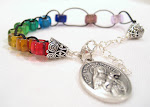
A Believe-It-or-Not Cancer Drug
By Edward Pentin
ROME, JAN. 22, 2009 (Zenit.org).- Imagine a medicine that has a staggering 75% success rate in treating cancer, and yet is a natural and ethical product, owned by a nonprofit company headed by devout Catholics.
Too good to be true? That's what I thought. The medical world is not short of bogus cancer "cures."
Treatment for the disease is a multi-billion dollar industry that has led to questionable or unproven methods springing up throughout the world.
Yet this little-known product, which works by rebuilding the body's own adult stem cells and destroying tumour cells, already has a 25-year track record as a highly effective cancer treatment.
Called CellAdam, it is most effective in preventing the early stages of cancer.
But it also impedes the malignant process, and has an analgesic effect in the hopeless stage of an advanced tumour.
Because of its natural composition, it has none of the hallucinogenic effects you get with morphine.
The ingredients simply include a fatty acid complex extracted from soy and sunflower.
"This is a totally unusual and huge breakthrough," says Dr. Thomas Janossy, president of Biostemworld, the company producing the drug internationally.
"In the next two to three years, it will become the first anti-cancer prescription drug in the world that is nature-based."
So why has hardly anyone heard of it?
According to Biostemworld, the reason is because it was developed in Hungary during the country's Communist era.
CellAdam was discovered, by chance, by Adam Kovacs, a Christian Hungarian researcher, who put his whole life into finding a cure for cancer.
Imre Beke, Biostemworld's chairman, calls it a "diamond in disguise" because of the numerous obstacles that have prevented this drug from reaching a wider market.
The first hindrance has been the Hungarian language.
"As the researchers of this drug only speak Hungarian, it's not been widely published in international media and so nobody really knows about it," says Beke.
Then there was the country's Communist past and personal rivalries that remained even after the fall of the Berlin Wall.
Nonprofit
Once any cancer drug hits the market, it can generate revenues of hundreds of millions of dollars.
Biostemworld is expecting CellAdam will generate over a billion dollars once it becomes fully viable in about two to three years.
"It's huge," says Janossy, "but we want the profit to be shared or managed by a Catholic interest where the hope is that the profit will help the people in need. It's a very unusual approach."
So what evidence is there that this drug really works?
Apparently, there is no shortage of testimonies, in addition to the company's claim that it has a 75% success rate.
There is a bus driver in Hamilton, Canada, who has just found out that after taking CellAdam for less than a month, a 5-centimeter tumour has been reduced to the size of pea and now he doesn't have to worry about having chemotherapy.
There is the case of a woman with lung cancer -- the hardest kind to treat -- which had become so bad that she had gone home to die.
"She started to take CellAdam and within two months she was practically clear," says Janossy.
"Constantly, every couple of days, there are these dramatic cases." Janossy says an ongoing 10-year study in Hungary is currently focusing on two groups of cancer sufferers.
One group, who all went through chemotherapy, have since died, but those who have been taking CellAdam are still alive.
CellAdam works by breaking down a shield that is preventing cancer cells from communicating with the body's natural immune system, allowing it to kill the cancer cells.
"It is putting back your immune system into balance," explains Beke, "assisting your immune system to cure the cancer, enhancing your own system to be natural and letting a natural process take over a sick body."
Certain cells react better than others to the drug, such as breast, lung and large intestinal cancer cells, melanoma malignum and certain types of obstetric tumours. But even large tumours can be blocked by CellAdam, claims Biostemworld.
Prevention
It's best track record, however, is as a cancer prevention therapy.
When used as a dietary supplement, it works by building up the body's adult stem cell count.
Stem cells can decrease by as much as 80% in the course of a lifetime, leading to signs of ageing, a weakened immune system, and diseases such as cancer.
With CellAdam and its other nature-based drugs, Biostemworld claims it can restore that count by as much as 75%, exceeding a similar product in California by 50%.
Not only do they prevent cancer, but other diseases too.
Furthermore, Biostemworld argues its products are without the dangers associated with synthetic drugs because they are less toxic.
Janossy says pharmaceutical companies prefer synthetic drugs because they are easier to patent and so make more money.
But he adds that synthetic drugs tend to mimic what is already available in natural drugs, some of which have been used in countries such as China for over 4,000 years.
She pointed to the growth of euthanasia, which is gaining popularity in the West as demand for health care for the elderly increases.
"My first thought when this company was forming was: bingo, this had to come because the medical establishment is saying: 'What are we going to do with all these old people?'"
Dalgarno felt it was "truly God's work," not only because it could help counter the push toward euthanasia, but also because their products are less expensive, less dangerous and more ethical.
Embryonic stem cell research plays no part in this medicine.
More details on CellAdam and Biostemworld's other nature-based disease prevention products can be found at: http://biostemworld.com/portal/
Edward Pentin is a freelance writer living in Rome.
He can be reached at: epentin@zenit.org.
Read more HERE.










.jpg)









.png)








No comments:
Post a Comment